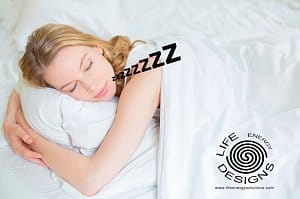
Insomnia is at epidemic proportions right now. Taking a pill may knock you out but it doesn’t cure the problem. To do this we have to look at the 9 basic nutrients and hormones that are vital to getting a good night’s sleep.
Herbs
Herbs have long been used for their relaxing, sedative properties. Chamomile tea is probably the most well-known and popular. Lemon verbena and lemon balm are also effective. There are commercial produced tea bags of mixed herbs and although good I don’t think there is anything like fresh and just picked herbs with its life force still intact. That is if you are fortunate enough to have access to it.
Magnesium
Magnesium is a very important mineral for sleeping well. Trying a magnesium supplement just before bed or after dinner to see if your sleep deepens.
Foods rich in Magnesium:
• Whole Wheat. Most whole grains are a good source of magnesium, but whole wheat flour wins with 160 mg per cup.
• Spinach.
• Quinoa.
• Almonds, Cashews, and Peanuts.
• Dark Chocolate.
• Black Beans.
• Edamame.
Calcium is an important mineral for sleep. Make sure that you eat calcium-rich foods such as:
• Seeds
• Cheese
• Yoghurt
• Sardines and Canned Salmon
• Beans and Lentils.
• Almonds
• Whey Protein
• Some Leafy Greens
A Calcium-Magnesium balanced supplement with minerals that is specifically for sleep might be needed. But for post-menopausal women, it is not recommended for heart health to take just a plain calcium carbonate supplement. So, if you are post-menopausal make sure you get your calcium balanced with magnesium in a good absorbable form.
Vitamin B Complex
B complex vitamins are really important for sleep. By taking extra B1, B3, B6 in a daily B complex supplement you help serotonin and melatonin, which is produced in the brain, and are essential hormones for sleep. It also helps decreases bad dreams or nightmares.
Foods containing B vitamins:
• Salmon. This all-around nutritious fish is high in several B vitamins.
• Leafy Greens. Several leafy greens stand out for their folate (B9) content.
• Liver and Other Organ Meats.
• Eggs.
• Milk.
• Beef.
• Oysters, Clams and Mussels.
• Legumes.
Vitamin D
Vitamin D is key to being able to sleep. Sunshine during the day helps the body know to go to sleep at night. If you can get outside sometime each day it helps.
Exercise while getting your sunshine dose of vitamin D will also help you to sleep besides getting away from the computer which is one of the things that inhibits sleep.
Zinc and Iron
Adequate Zinc and iron levels can play a role in healthy sleep. If your sleep is poor and doesn’t improve with an adequate diet it may be wise to have your Zinc and iron levels tested as you may need a boost.
Foods containing Zinc:
• Meat. Meat is an excellent source of zinc
• Shellfish. Shellfish are healthy, low-calorie sources of zinc.
• Legumes. Legumes like chickpeas, lentils and beans all contain substantial amounts of zinc.
• Seeds.
• Nuts.
• Dairy.
• Eggs. …
• Whole Grains.
Foods containing iron:
• Shellfish. Share on Pinterest.
• Spinach. Spinach provides many health benefits for very few calories.
• Liver and Other Organ Meats. Organ meats are extremely nutritious.
• Legumes. Legumes are loaded with nutrients.
• Red Meat.
• Pumpkin Seeds.
• Quinoa.
• Turkey.
The Hormone Serotonin
Serotonin levels in certain areas of the brain affect our moods. This is why some problems such as depression and anxiety often lead to sleep disorders. While melatonin governs the entire sleep/wake cycle, serotonin is involved more specifically in wakefulness, in triggering sleep, and in REM sleep.
How to increase serotonin.
• Look at your diet. See beneficial foods below.
• Vitamin B complex supplement
• Herb St. John’s Wort.
• Get consistent, good sleep!
• Get enough vitamin D – or take a supplement.
• Go for a walk in the sunshine.
• Reduce your stress.
Foods that increase Serotonin:
• Eggs. The protein in eggs can significantly boost your blood plasma levels of tryptophan, according to recent research.
• Cheese. Cheese is another great source of tryptophan
• Pineapples.
• Tofu.
• Salmon.
• Nuts and seeds.
• Turkey.
The Hormone Melatonin
Melatonin is The Sleep Hormone. Without it, we don’t sleep properly or much at all. It is solely responsible for our entire sleep cycle.
Melatonin is produced by the pituitary gland when it is dark at night – and only then. You would think that if your bedroom was dark enough there would be no problem. But there is.
The increasing levels of EMF radiation are the single most reason why there is an insomnia epidemic. The pituitary gland can’t distinguish between EMF radiation and light. EMF fools our pituitary gland into believing that it is perpetually daylight. This inhibits, or stops us, producing Melatonin. Hence, we don’t sleep. This is why EMF protection is absolutely necessary if we are going to get a proper, deep night’s sleep.
It is imperative that you get adequate, well performing
EMF protection products to enable you to make the hormone Melatonin if you want to sleep well.

